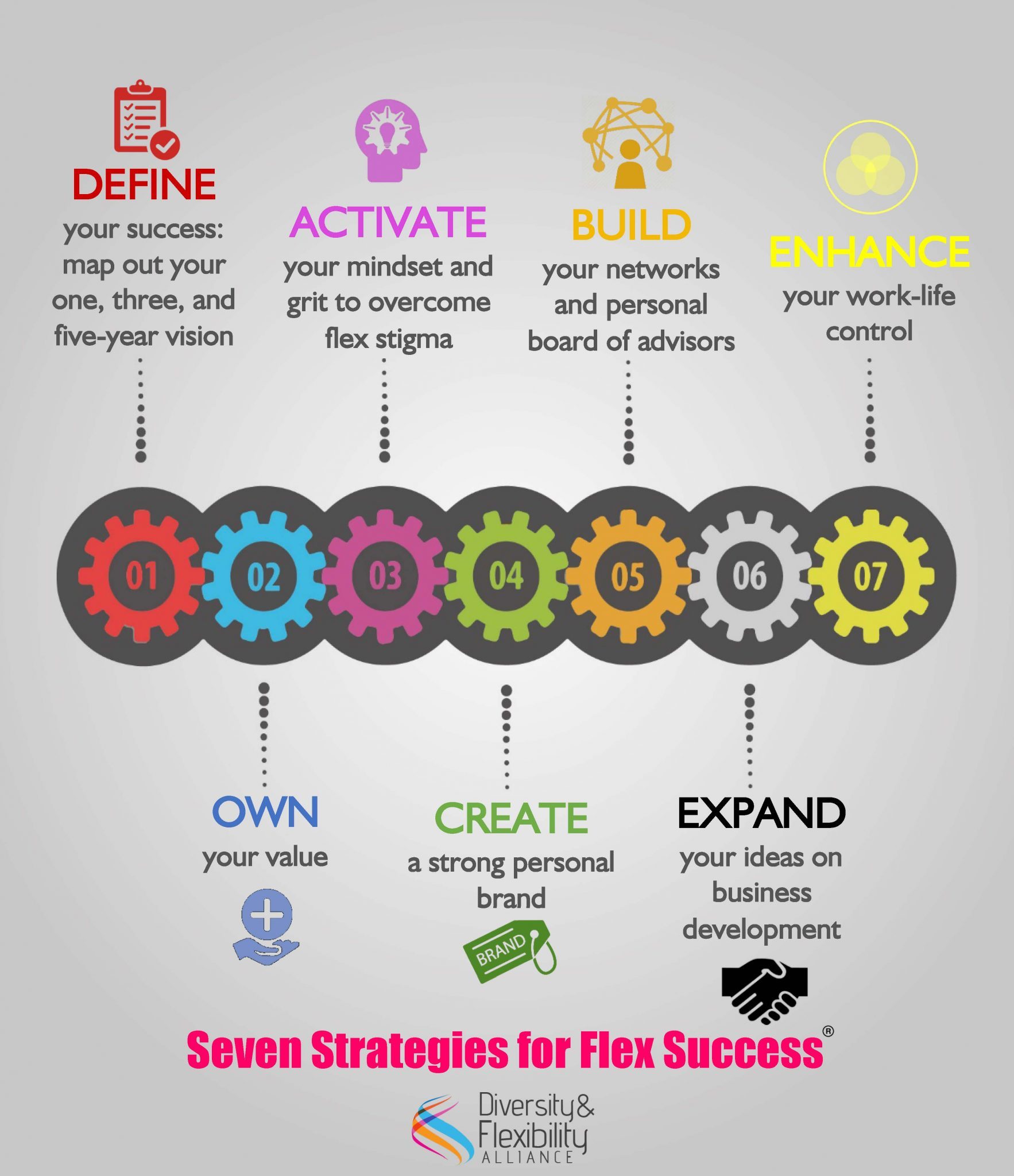When implementing a flexible work initiative, it’s important to remember that everyone in the organization has a role in its success. Whether working a flexible schedule or not, everyone must understand the importance of the policy and fulfill his or her role in supporting it. Flex education tailored to the myriad professionals with differing perspectives throughout the organization is key to the success of the flex policy.
At the Diversity & Flexibility Alliance, we advise organizations to offer three different types of flexibility education customized for three different audiences within your organization:
Flex Professionals must understand their role and responsibilities. Educational components for flex professionals must encompass the importance of understanding exactly what is expected of the individual in the flex agreement. The flex professionals should be trained in the following skills:
-
- Articulating exactly what they hope to achieve through the flex schedule and what they intend to accomplish in their career development;
- Demonstrating commitment to their schedules and careers;
- Exploring realistic approaches to communications and face-time expectations;
- Providing workable solutions to devoting time to important aspects of career development including business development and organizational citizenship;
- Maintaining visibility even when physically out of the office;
- Leveraging technology;
- Handling bias.

 No matter what industry you’re in, it’s always good to stay one step ahead of your business, your clients, your customers or your marketplace. You always want to be thinking about tomorrow and where your career is headed and where your income is coming from. While you might approach business development in a slightly different manner in light of your flexible schedule, it’s still imperative that you dedicate time to business development and to generating your future revenue.
No matter what industry you’re in, it’s always good to stay one step ahead of your business, your clients, your customers or your marketplace. You always want to be thinking about tomorrow and where your career is headed and where your income is coming from. While you might approach business development in a slightly different manner in light of your flexible schedule, it’s still imperative that you dedicate time to business development and to generating your future revenue. Diversity & Flexibility Alliance: How have you made flexibility a priority and a success through your career?
Diversity & Flexibility Alliance: How have you made flexibility a priority and a success through your career?  Diversity & Flexibility Alliance: How have you made flexibility a priority and a success through your career?
Diversity & Flexibility Alliance: How have you made flexibility a priority and a success through your career? 